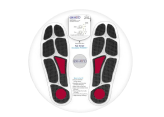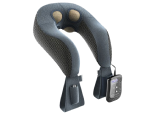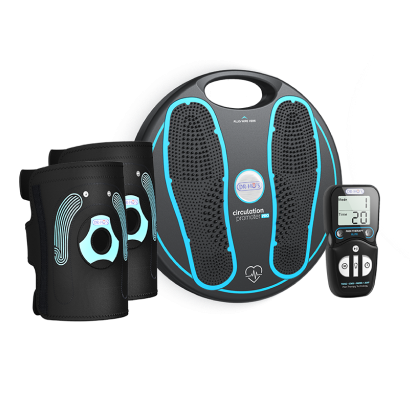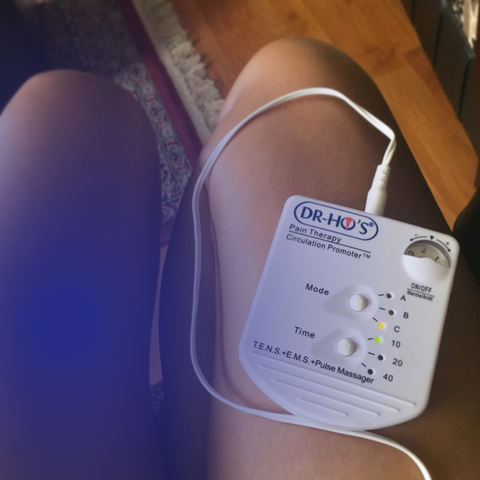June 10, 2022
The Study at a Glance
When we experience everyday aches and pains, many of us reach for over-the-counter (OTC) medications like Ibuprofen and Aspirin as a solution. These medications are known as Non-steroidal anti-inflammatory drugs. NSAIDs alleviate inflammation, a major factor in acute pain. While these medications have well-documented benefits for pain relief, a new study conducted by researchers at McGill University challenges the existing notions of treating acute pain. The findings suggest that treating some forms of acute pain with anti-inflammatory drugs may increase the risk of that pain developing into a chronic condition. Let’s dive into the findings of this study to better understand the relationship between chronic pain and inflammation and what science says about managing your pain.
What Researchers Were Looking For and Why
Before exploring this study, we wanted to emphasize that this research is in its early stages and should not be used as medical advice. We encourage you to talk to your doctor about these findings and what they could mean for you!
The focus of the research was to look at what causes acute (short-term) pain to transition into a chronic (long-term) condition. A controlled experiment looked at gene responses to anti-inflammatory medications in patients suffering from acute lower back pain.
According to the co-senior author, Luda Diatchenko, “we observed active changes in genes over time in people whose pain went away.” According to Diatchenko and her team, the critical gene changes were found in a type of immune blood cell called neutrophils. These cells play a crucial role in the early stages of inflammation and repair in the body.
What Were the Results?
Simply put, when subjects did not use NSAIDs to treat their lower back pain, their neutrophils underwent genetic changes. The researchers found those who did not use the drugs recovered swiftly from their acute back pain. Those same genes were conspicuously silent in the patients who experienced longer-term chronic pain.
These results were quite unexpected, as anti-inflammatory drugs are a widespread treatment for lower back pain, and decades of evidence have established that they help reduce pain. But this initial finding suggested using OTC medication to suppress the early inflammatory response to pain could be doing something to increase the risk of chronic pain developing.
Repeating the Results with Mice in a Controlled Setting
The correlation between using NSAIDs and the increased risk of acute pain becoming chronic motivated the researchers to conduct trials on mice in the lab, and the results were striking.
The focus of this study was on the immune cells we mentioned earlier, neutrophils. Researchers wanted to determine the effects of suppressing these cells on the long-term pain of the mouse subjects. They compared traditional OTC anti-inflammatory medications against a control group.
They found directly blocking the activity of these cells led to pain responses in animal tests that lasted 10 times longer than normal controls. Co-senior author Jeffery Mogil explains, “ Neutrophils dominate the early stages of inflammation and set the stage for repairs of tissue damage. Inflammation occurs for a reason, and it looks like it’s dangerous to interfere with it”.
What Does This Mean for the Science of Pain?
The findings of this study do not discount the effectiveness of these medications in the short term. The focus of the study was on the immediate effects of suppressing the inflammation response and the impact on chronic pain. Further long-term testing is still needed to change how we think about managing inflammation and lower back pain.
Our key takeaway from these findings is how they show how complex pain can be. The more we learn about the science of pain, the more it becomes clear that a one-size-fits-all approach can be detrimental to our long-term health.
A Holistic Approach to Pain Management is Safe and Reliable
 Pain is personal. What works for someone else might not work for you. A holistic approach to pain management is always advisable: it can help pain sufferers discover a wide variety of positive life changes that could help them find the relief they’re looking for. A balance of healthy eating, exercise, restful sleep and drug-free devices like TENS machines are all part of the holistic approach that millions of pain sufferers rely on.
Pain is personal. What works for someone else might not work for you. A holistic approach to pain management is always advisable: it can help pain sufferers discover a wide variety of positive life changes that could help them find the relief they’re looking for. A balance of healthy eating, exercise, restful sleep and drug-free devices like TENS machines are all part of the holistic approach that millions of pain sufferers rely on.
When it comes to managing daily pain, the key is always to listen to your body, listen to the experts and keep trying treatments because sooner or later, you’ll find one that works for you.








